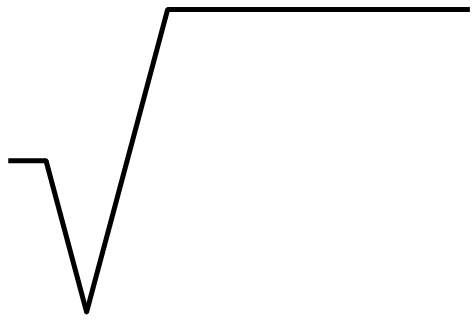Endless Rooting
 What would be the answer of:
5
5
5
5
5
.
.
.
.
.
.
.
.
.
.
.
.
.
.
.
.
.
.
.
.
.
.
.
.
.
.
.
.
.
.
=
?
What would be the answer of:
5
5
5
5
5
.
.
.
.
.
.
.
.
.
.
.
.
.
.
.
.
.
.
.
.
.
.
.
.
.
.
.
.
.
.
=
?
The answer is 5.
This section requires Javascript.
You are seeing this because something didn't load right. We suggest you, (a) try
refreshing the page, (b) enabling javascript if it is disabled on your browser and,
finally, (c)
loading the
non-javascript version of this page
. We're sorry about the hassle.
15 solutions
why cant x be 0 too? it is also a root of the equation..
Log in to reply
Though x can be 0 from the Quadratic above, from the given value it is evident that x > 0
If you take sqrt(5sqrt(5sqrt(5sqrt(5sqrt(5sqrt(5... on a calculator, you'll find the answer approaches 6. Could someone explain?
Log in to reply
I'm so handsome
Does it? It approached 5^1 for me...
seriously?
I agree it was a pretty intimidating problem.......
not a complete solution
Well done, bro, I mean to Anik.
This solution gives me a great notion about infinite series! Thanks!
5 5 5 5 . . . = ?
⇒ 5 5 5 5 . . . = ? 2
⇒ 5 ? = ? 2
⇒ 5 = ?
Or,
5 ? = ? 2
⇒ 5 ? − ? 2 = 0
⇒ ? ( 5 − ? ) = 0
⇒ ? = 0 , 5
Since ? = 0 ,
? = 5 .
(In math, it is generally more proper to solve by factoring rather than canceling like in the first solution. This is because canceling sometimes leads to loss of roots. And even though the root lost in this case was a false one, sometimes it may be a true one.)
GENERAL CASE:
N N N N . . . = N
Proof:
N N N N . . . = N
⇒ N N N N . . . = N 2
⇒ N ⋅ N = N 2
⇒ N 2 = N 2 ,
∀ N .
Incorrect way to prove something. You assumed that what need to be proved is true.
Like: Proof of -1 = 1: − 1 = 1 ( − 1 ) 2 = 1 2 1 = 1
See how it can go wrong?
That is not right, because in the final step you get: N × N = N 2 . Then, N = N . Finally, N = 0 and N = 1...
makes sense since its an infinite sequence. Of course then it should also be possible to have the answer as 1.
Let the expression be equal to x . Then squaring both sides gives x 2 = 5 x . If you don't see why, notice how by squaring x adds a coefficient of 5 to x . Solving, we have x = 5 .
because of the expression in spread over infinite so i can assume the value of given expression is equal to =x and squaring on both side i will get the expression x^2=5(and in square root of the expression due to the infinite value it is assume that the value is equal to x) and solve these equation will get answer appropriate.................thats is if you have any quaries you can call me 9616667833..................so thanks friends...............
Whatcha doin, boy? Translating my solution to English? Lol
Let 5 5 5 . . . . = x
Then x 2 = 5 5 5 5 . . . .
We already know that 5 5 5 . . . . = x , so 5 5 5 5 . . . . = 5 x
It becomes x 2 = 5 x and x = 0 a n d 5
So x = 5
If X equal the above equation. Then x^2 will equal 5x. This can be solved through simple algebraic methods to give x=5 or x=0. 0 can be disagreed
Dat solution!
Powers in GP, Infinite gp sum =1/1-1/2 =2 Root over 5^2 =5
let the given expration be x then we have x=sqrt(5x) or x^2 = 5x ==>x=0,5 hence the expresion is either zero or 5. Upvote iff agree..! :)
Expression = Product over n=1,2,3... of 5^(2^-n) = 5^(Sum over n=1,2,3... of 2^-n) = 5 ^ 1
Assume that 5^1/2(5^1/2 5^1/2 ....= a ------(1) 5(5^1/2 5^1/2 .... = a^2 -------(2) I insert (1) in (2) will be 5a=a^2 So that a^2-5a=0 a(a-5)=0 a=5,0 but a cannot be 0 during question so a must be 5
Just made a brilliant thought. if there are five terms and they are all similar to the number of square root symbols, in this case 5, then the answer is 5.
y= sqrt(5* sqrt (5* sqrt (5* sqrt ... ... ... =>y^2= 5 y =>y^2-5 y =0 =>y*(y-5)=0 so, y=5
let root of 5...... be x
as the nested radical continues till infinity, it can be written as=
root of 5 *x = x
5x = x^2
x^2 - 5x =0,,, x(x-5) = 0,
x-5 = 0, x=5
x=√(5√(5√5) ) ……………∞, x^2=5x x=5
\sqrt { 5\sqrt { 5\sqrt { 5.. } } }
Lets assume: sqrt { 5\sqrt { 5.. } } = x 5x = { x }^{ 2 } { x }^{ 2 }-5x = 0 x(x-5) = 0 x = 0,5
5 5 5 . . . . . . . .
0r, 5 x = x
Or, 5 x = x 2
Or, x = 5